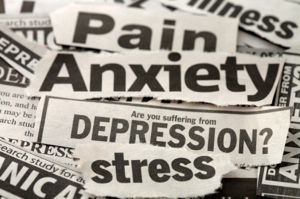Information about depression and mood disorders is fairly easy to come by online, but it’s not always up-to-date, accurate or detailed enough to be helpful. I’ve been reviewing many of the major mental health websites to figure out which are the most helpful for understanding the illness and deciding what to do about it.
I’ve chosen 10 sites that I turn to frequently when I have questions. Even if they don’t have detailed answers, they give me a starting point for learning more. They’re good companions to the outstanding depression blogs I mentioned in an earlier post.
Each is well-established with a long track record, and each has comprehensive materials on depressive disorders. Four of them have been singled out by the Zermatten research study as meeting a uniform set of standards for high quality information on depression. (Those four are MedicineNet, Wikipedia, About.com, and MentalHelp.Net.)
As with most online information, there is a firehose problem. How can you select the most relevant updates and articles from thousands on mental health? The major news outlets, like Time, the New York Times or the BBC have selective coverage of recent developments, but they usually emphasize only the hot topics and catchy headlines.
The majority of the general health sites, even those with extensive mental health sections, obtain their materials from information providers that serve many other sites. That’s why they tend to sound similar and often gloss over highly controversial issues.
These 10 offer a lot of in-depth information as well as the latest news and research updates. Navigating around websites with huge amounts of information is never easy, so it pays to take time getting familiar with them. Otherwise you’re likely to miss some great material.
I’m sure there are other sites you consult, and I hope you’ll let me know which ones should be added to the Resources page here.
-
Science Daily is a comprehensive site with news and other features on virtually all of the sciences. It has an extensive Mind & Brain section covering all aspects of psychology, neuroscience, psychiatry and mental health. There are more specialized sections on depression and all the major mind disorders as well as related neurological diseases. The site uses a tabbed interface for each subject featuring current news, reference articles, videos, images and books. You can get email updates or RSS feeds for each subject. It’s a well-organized site that will definitely keep you up to date.
-
One of the few major medical centers with an informative and authoritative website, the Mayo Clinic provides much of the background material on depression used by other health sites. It has a series of concise background articles on the basics of depression, many more in-depth articles, answers to common questions and a blog with occasional updates and commentary.
-
Wikipedia’s Major Depressive Disorder page was selected as of the top 10 highest quality sites in the Zermatten study. This is one of several well-researched articles on depression and mental health you can find in this rich site. Wikipedia also has an extensive psychology portal with a good introduction to psychotherapy and a list of more than 150 therapy models. It has extensive resources on neuroscience, antidepressants and psychiatry. You need to look closely at many of the highly specialized articles to be sure they haven’t been marked as incomplete, biased or lacking in adequate citations. Unlike any other comprehensive website, the Wikipedia editorial community has a good record of flagging and remedying these problems.
-
Psychiatric Times is written by and for psychiatrists, but these non-technical articles bring out excellent ideas concerning treatment of mood disorders. The authors, including notables like Allen Francis, Ronald Pies and Cynthia Geppert, present original insights and constructive criticism of current psychiatric practice and methods. You may not agree with them, but they are always engaging. Most of us rely on psychiatrists for help, and I like to listen in on some of the best thinking in the field.
-
Psych Central, founded by Dr. John Grohol, is the oldest and very likely the most comprehensive mental health site on the web. The depression page begins a thorough review of the illness. There is an excellent discussion of antidepressants as part of a larger section on psychiatric medications. Also, you’ll find a thorough introduction to psychotherapy with separate articles on the major types, including cognitive, psychodynamic and interpersonal therapies. All the in-depth reference sections on this site have been written by staff under professional review.
-
MentalHelp.Net, like PsychCentral, was founded by a psychologist, Dr. Mark Dombeck, and has been going strong since the late 90s. While the site does use some third party content, all the major sections, including a book-length introduction to depression, have been written by practicing psychologists on staff. The depression section includes the most complete and thoughtful discussions I’ve found on the web about contributing factors, medications, alternative treatments and self-help resources. There is also an online self-help book, consisting of 164 sections full of sound advice for planning self-help efforts for mental health generally. The site also has an active blogging community with an archive of more than 2500 posts.
-
MedicineNet, another of the top 10 sites in the Zermatten study, is a part of WebMD that specializes in physician-written materials for public use. The section on depression has 30 original articles introducing the various aspects of the illness. These are supplemented by extensive references, patient stories and news updates. I especially like the balance in its discussion of depression causes and treatments and the historical perspective found throughout the articles.
-
MedlinePlus is a public education project of the National Library of Medicine. It has assembled a variety of authoritative articles from federal and private agencies that make it an exceptional resource on depression and most major diseases. There are dozens of articles on depression and related issues, many of which are immediately downloadable in PDF format. The site includes an additional extensive section on depression from a medical encyclopedia provided by A.D.A.M. That is one of the best independently monitored publishers of medical information.
-
About.com Depression The About.com site is an online reference for a vast number of subjects, and its depression section is another of the top 10 high quality sites selected by the Zermatten study. A subsidiary of the New York Times, the About.com site combines original blog and background articles, produced by its own staff of physician writers, with an excellent in-depth discussion of depression produced by A.D.A.M. This is the same article used by the New York Times website, where it is available as a PDF download.
-
National Institute of Mental Health is the central research agency of the federal government on mind disorders and the effectiveness of various treatments. Its depression site has downloadable booklets in English and Spanish and features discussions about how the illness affects the various population groups. The articles themselves are basic and don’t add anything new, but the site is a hub for access to many federal sources. You can easily find links to research programs, mental health statistics, major studies – such as the STAR*D project on antidepressants, clinical trials and public outreach initiatives.
I’ll be adding more web resources soon, including personal blogs, advocacy organizations, forums and communities. Please let me know which online information sources have been most helpful to you.




Where did you obtain the details to write My Top 10
Depression Information Websites? I believe I have read the same info somewhere.
The post contains a reference to the one study I consulted. The choices are my personal preferences and include information from my readings at each site as of four or five years ago, when this was written.
Thanks for commenting.
Bipolar disorder (also known as manic depression) causes serious shifts in mood, energy, thinking, and behavior–from the highs of mania on one extreme, to the lows of depression on the other.